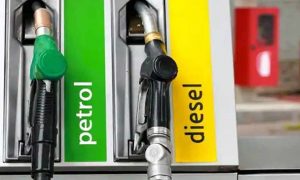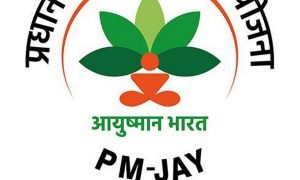Currently, Bharat Petroleum Corporation (BPCL) controls roughly 25 per cent of the fuel retailing network and 14 per cent of India’s oil refining capacity
The state-owned Bharat Petroleum Corporation intends to invest Rs 1.7 lakh crore over the next five years to expand not only in its future big bets of petrochemicals and green energy, but also in its core businesses of gasoline marketing and oil refining, said chairman G Krishnakumar.
Read More: After Zomato, now Swiggy launches group ordering function – Know more
According to Krishnakumar, “Our mid-term strategy is on a continuum. While we remain committed to growing our core businesses, which include refining and marketing petroleum products and upstream, we are equally focused on our big bets comprising petrochemicals, gas, green energy, non-fuel retail, and digital. Project Aspire, with a planned capex outlay of around Rs 1.70 lakh crore over five years, will enable us to create long-term value for our stakeholders while preserving our planet for future generations,” he said.
Currently, Bharat Petroleum Corporation (BPCL) controls roughly 25 per cent of the fuel retailing network and 14 per cent of India’s oil refining capacity. It intends to expand into more recent markets while growing these companies.
According to the company’s most recent annual report, ‘Project Aspire’, a five-year strategy framework built on the two key pillars of ‘Nurturing the Core’ and ‘Investing in Future Big Bets’, is the first part of the firm’s multi-decade aspirational journey. Further, the company is targeting net zero carbon emissions from its operations by 2040. “BPCL has drawn a net-zero roadmap, which encompasses renewable power, green hydrogen, compressed biogas, carbon capture, utilisation, and storage (CCUS), efficiency improvement and the offsets procurements. This would require a phased capital outlay of approximately Rs 1 lakh crore till 2040, and the company is geared for the same,” he said.
Read More: Banks woo depositors with special schemes amid contest with markets
Towards growth and expansion
The company is betting that it will keep investing in its core industries because it believes that the growth of the Indian economy would lead to an annual increase in the demand for energy and petroleum products of 4-5 per cent. Additionally, a 7-8 per cent annual increase in demand for major petrochemical goods is anticipated.
At two of its three oil refineries, BPCL is putting new petrochemical projects into operation. The Bina refinery in Madhya Pradesh is building an ethylene cracker project of Rs 49,000 crore and plans to increase its yearly oil refining capacity from 7.8 million tonnes to 11 million tonnes by 2029. By 2027, a polypropylene plant will be operational at the Keralan refinery in Kochi. “To meet the anticipated demand beyond our planned expansions in Bina and Kochi, we are actively evaluating options for setting up additional integrated refining and petrochemical capacities within the next 5-7 years,” Krishnakumar said without disclosing either the investments or the location of such a project.
Andhra Pradesh is being speculated as the likely site after Prime Minister Narendra Modi’s BJP and regional party TDP stormed to power in the state in recently concluded assembly elections. TDP has been demanding the implementation of a refinery-cum-petrochemical complex that was promised as part of the package when the state was split more than a decade back. Additionally, the firm is investing around Rs 300 crore in 72 MWp of solar project in Prayagraj, Uttar Pradesh.
On energy transition, Krishnakumar said BPCL is targeting to build 2 gigawatts (GW) of renewable energy capacity by 2025 and 10 GW by 2035. “We are investing nearly Rs 1,000 crore to establish two 50 MW captive wind power plants in Maharashtra and Madhya Pradesh, which will support our refineries in Mumbai and Bina.”
Furthermore, the company has installed over 3,000 charging stations, including fast chargers for cars and two-wheelers. 900 fast chargers are installed across 120 highway corridors, which helps address the range, discovery and time anxiety of electric vehicle (EV) owners. “Over the next five years, we aim to install 4-wheeler fast chargers at approximately 6,000 retail outlets across 400 highway corridors, prioritising high-traffic corridors like the Golden Quadrilateral and N-S/E-W highways,” he said.
Regarding biofuels, he noted that BPCL offers petrol at 4,279 of its more than 22,000 petrol pumps with a 20 per cent ethanol blend. Additionally, it’s developing compressed biogas plants that turn waste municipal solids into gas suitable for use as compressed natural gas (CNG) in cars. The company is also looking into joint ventures in this field. “These combined efforts, along with the upcoming commissioning of a bio-ethanol refinery, positions BPCL as a key player in India’s transition to a greener fuel mix, creating a robust ecosystem for the adoption of cleaner fuels across the country,” he added.
Read More: FPIs Turn Net Sellers; Pull Out Rs 21,201 Crore From Equities In Aug So Far
On India being ‘Viksit Bharat’ by 2047
“The nation has an ambitious vision of becoming a $30 trillion developed economy by 2047. ‘Viksit Bharat @2047’ will necessitate an almost fourfold increase in primary energy demand,” he said. He further added that India’s exponential growth trajectory will propel it to a pivotal role in the global energy market, accounting for roughly 12 per cent of world energy consumption by 2047.
“The key strategic objectives for India in the energy sector will entail significant expansion in refining capacities, raising the share of gas in the energy basket from about 6 to 15 per cent, establishing leadership in petrochemical exports, and sharply reducing energy imports from current levels of 47 to below 25 per cent by 2030 and to zero by 2047,” he noted.
With the ultimate objective of net-zero emissions by 2070, India aims to achieve 500 GW of non-fossil fuel energy capacity, source half of its energy needs from renewables, reduce carbon emissions by 1 billion tonnes, and cut carbon intensity by 45 per cent by 2030. “Building on its strong Indian energy presence, BPCL aspires to meet 7-10 per cent of the nation’s primary energy demand by 2047,” he added.
(with PTI inputs)





































